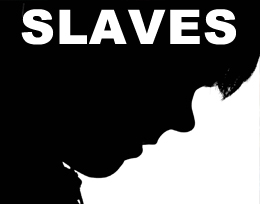MODERN-DAY slavery is happening in restaurants and households across Ireland, a migrant support group has warned.
The Migrant Rights Centre Ireland (MRCI) in Dublin has said it is “regularly encountering” instances of forced labour, where an individual is blackmailed into an exploitative workplace through threats and violence. These abuses frequently involve immigrant domestic and restaurant workers.
“Forced labour is happening across Ireland but remains largely unidentified by key agencies,” said Edel McGinley of the MRCI.
“These workers are exploited and threatened to such an extent that they live in fear and are not free to leave… the levels of coercion are little understood, and therefore not believed,” she added.
Restaurant and household owners may be aware that a worker has been trafficked, and terrorise the individual alongside gangs from their home country, according to the MRCI. Often the trafficked person’s documents are withheld and family-related threats made in order to keep them silent.
The MRCI maintains that the nature of the problem is still not being identified by “key agencies”, including the Garda National Immigration Bureau (GNIB), with victims of forced labour often identified as undocumented migrants and sent home “without recourse to justice”.
McGinley said the National Anti Trafficking Action Plan, formally launched last week, will only be successful if there is “a shared understanding” of trafficking.
According to the Department of Justice, the anti-trafficking plan contains a range of measures designed to crack down on individuals and gangs involved in people trafficking.
Penalties of up to life imprisonment will be imposed on those who traffic people for the purposes of labour and sexual exploitation. Other measures include a ‘recovery and reflection’ period of 60 days for victims, and provision for temporary (renewable) six-month residency permits where suspected victims are co-operating with an investigation or prosecution.
But some campaigners say these actions are not being implemented properly. Gerard-ine Rowley of Ruhama, which works with women in prostitution, said only four victims of trafficking have been granted the recovery and reflection period since the new plan’s administrative procedures came into force a year ago.
She commented: “Our experience on the ground is still that victims of sex trafficking are not being believed, not getting adequate support and their rights are not being respected in all cases.
“We are concerned that victims have to wait long periods of time before the recovery and reflection period is granted and that often victims are co-operating in criminal investigations before they are given temporary residency permits.”
Rowley added: “The identification of victims needs to be broadened to include the collaboration of relevant agencies, not just the gardaí.”












